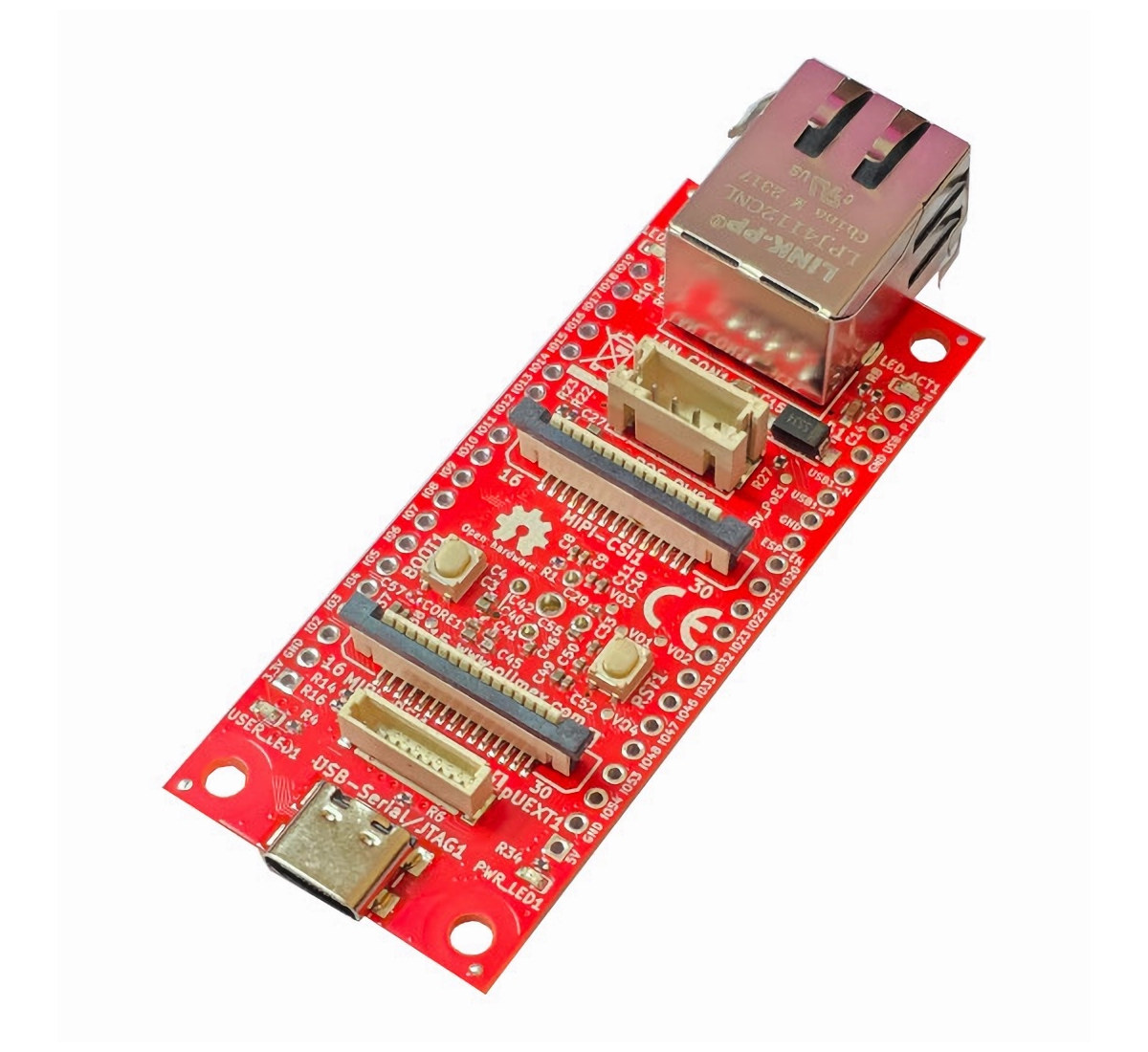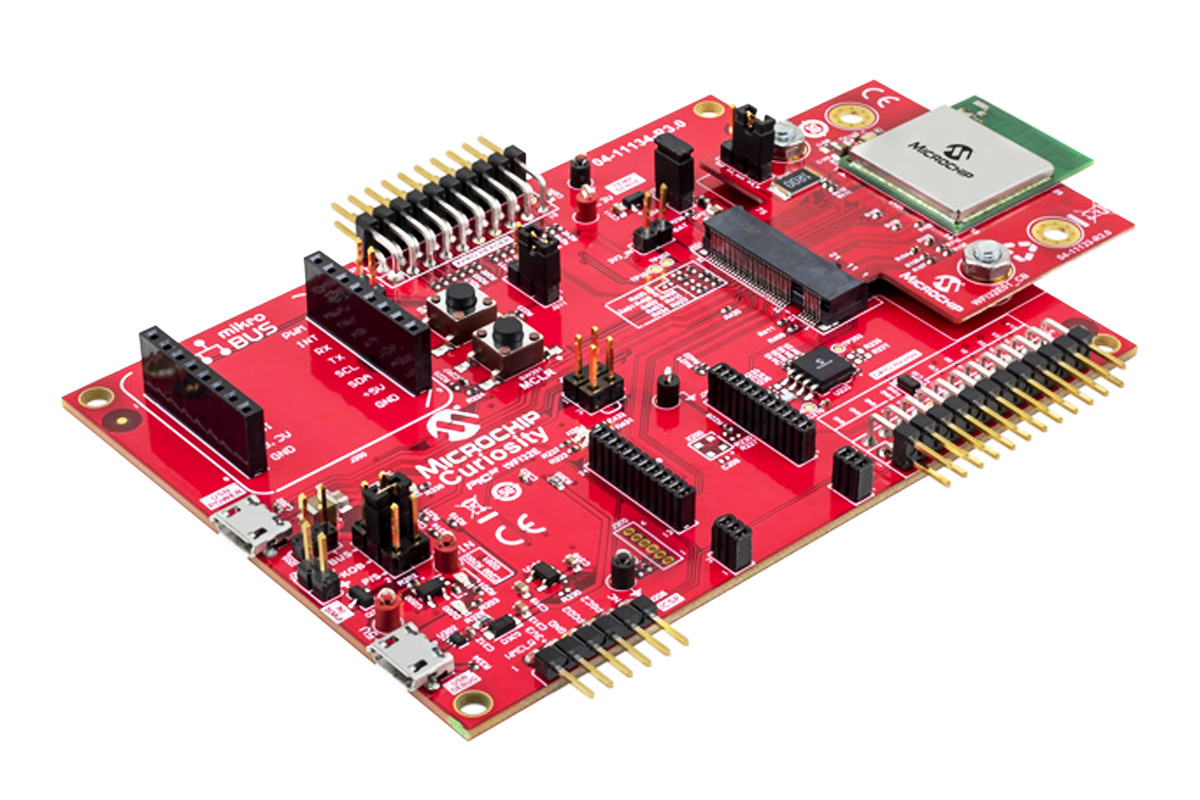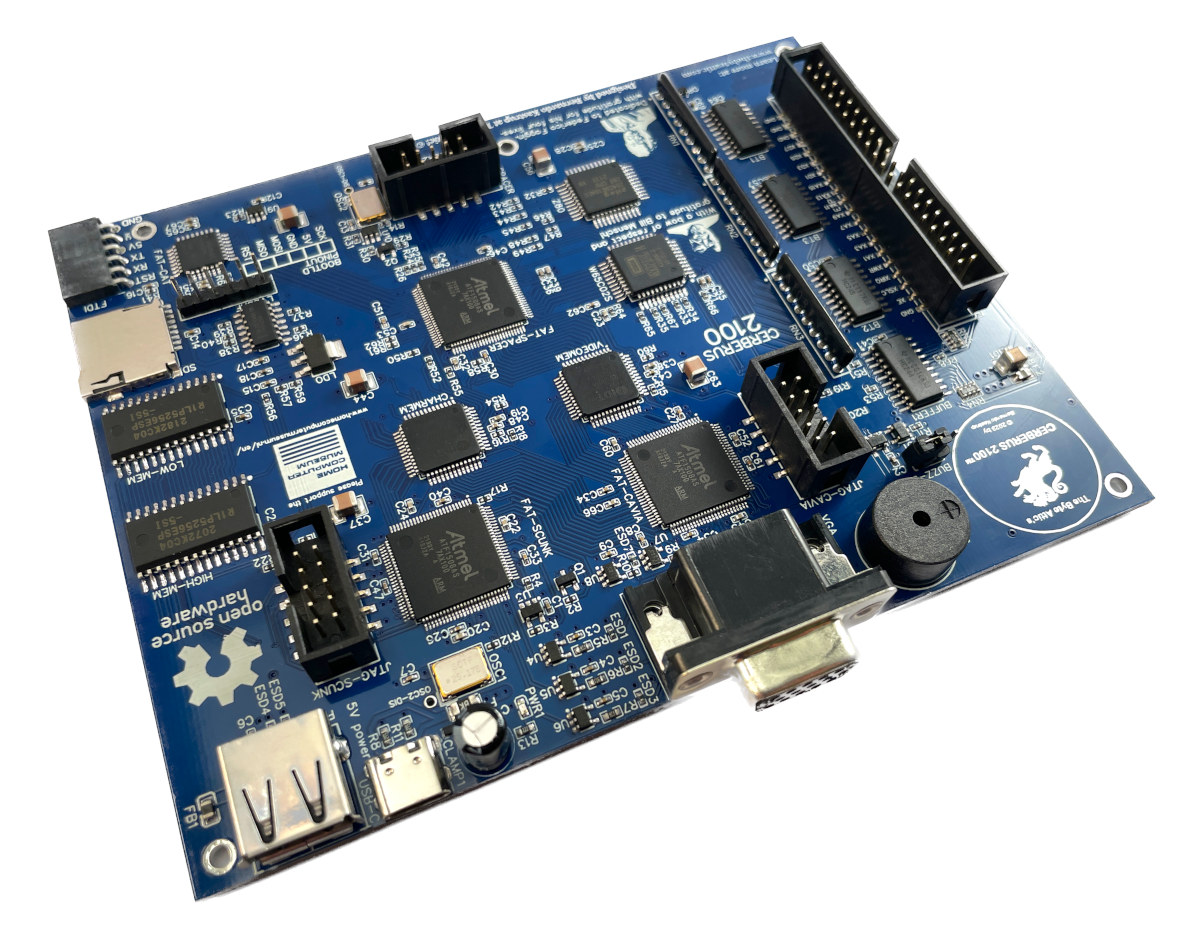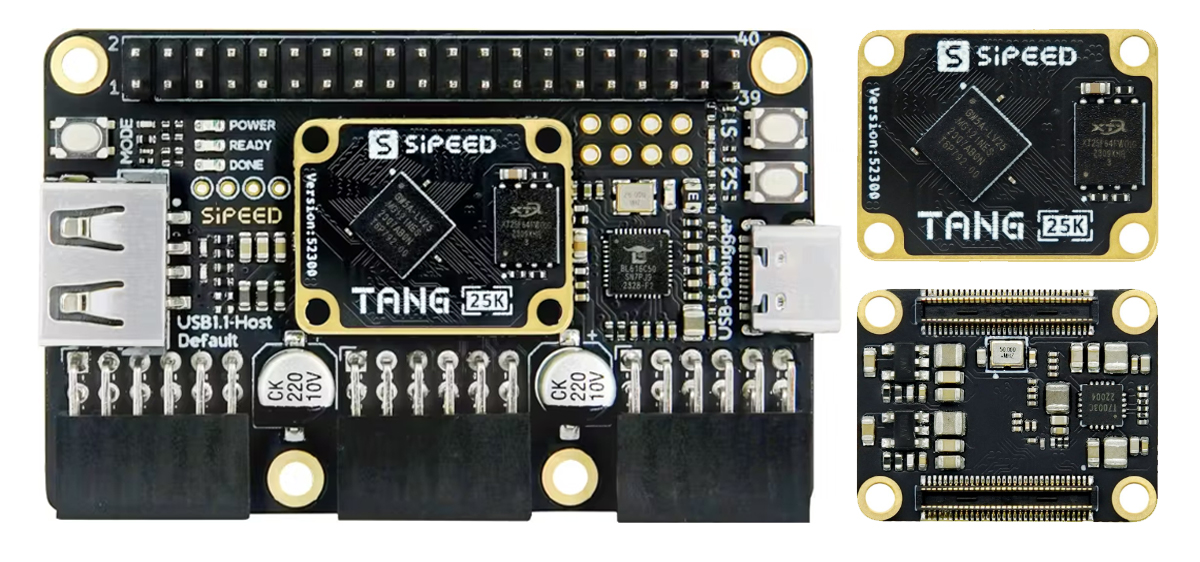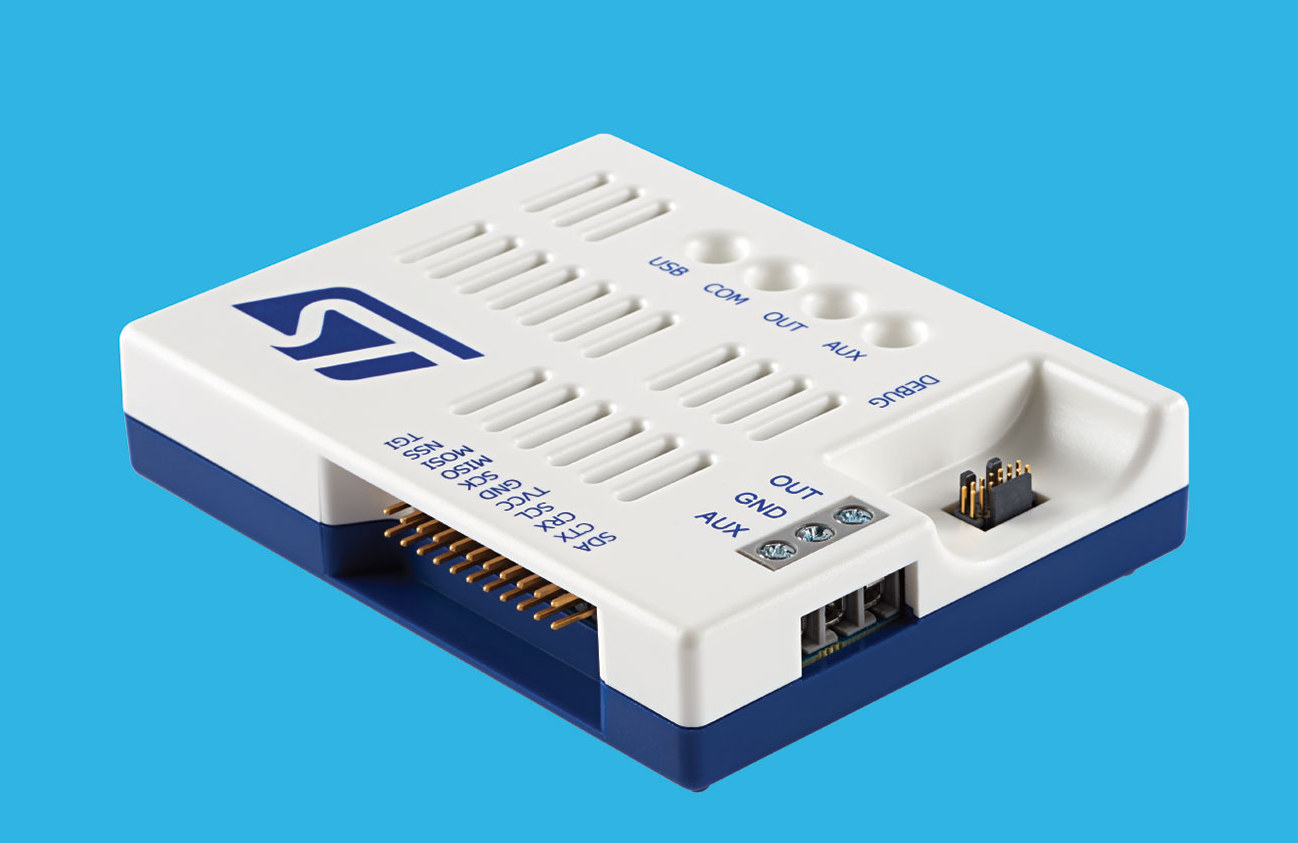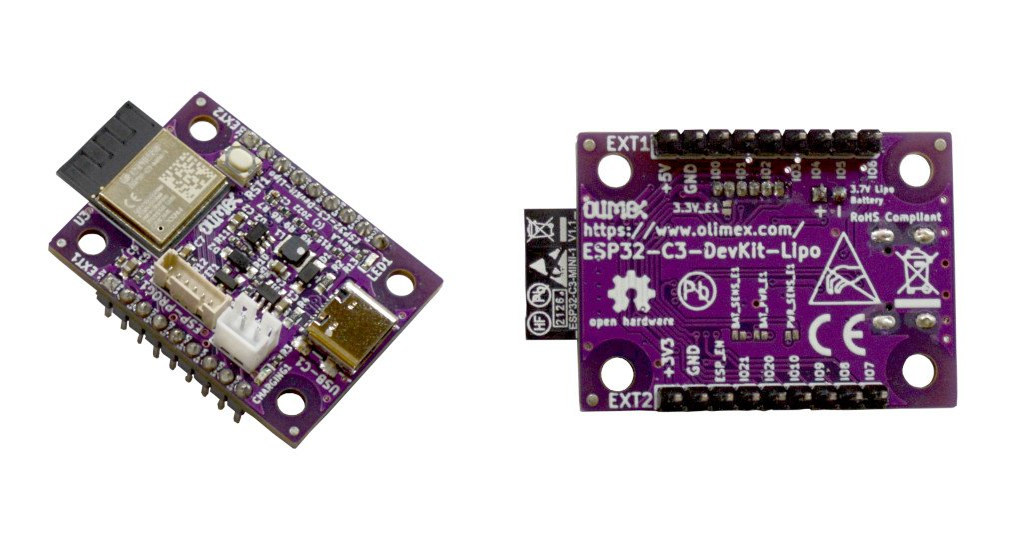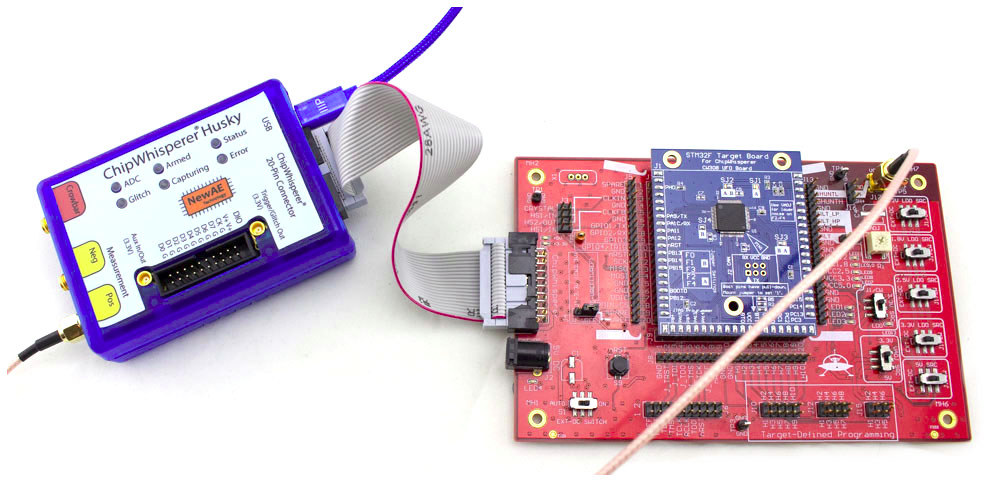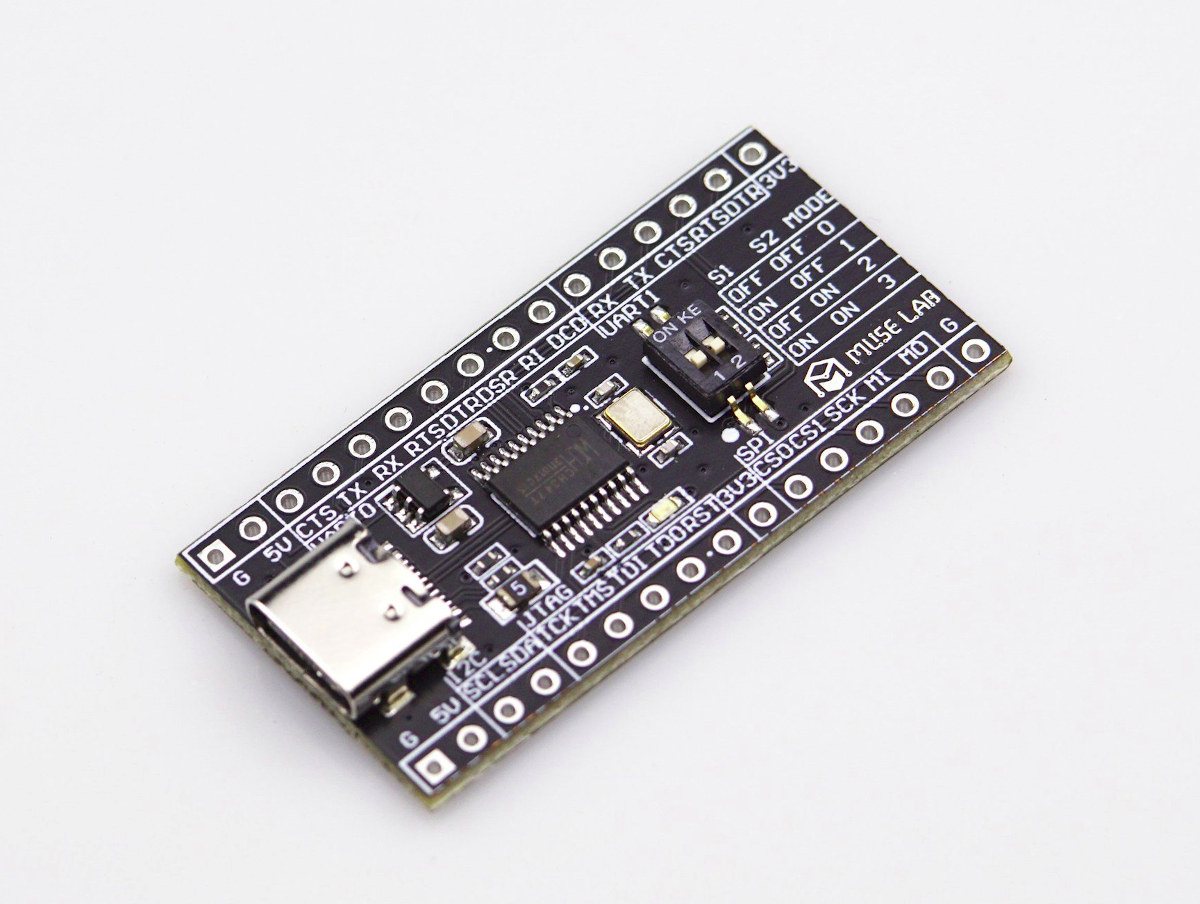Olimex ESP32-P4-DevKit is a compact development board powered by a 400 MHz ESP32-P4 general-purpose dual-core RISC-V microcontroller with a 10/100Mbps Ethernet RJ45 connector, a USB-C Serial/JTAG connector, MIPI DSI/CSI connectors for a display and a camera, GPIO headers and UEXT connector, Boot and Reset buttons, and a few LEDs. In some ways, it offers similar to the Waveshare ESP32-P4-NANO board we covered last month, but in a different form factor, and it lacks WiFi 6 connectivity and a USB Type-A connector. It’s also much more compact and cheaper than the official ESP32-P4-Function-EV-Board launched this summer, but again, with fewer features. Olimex ESP32-P4-Devkit: Microcontroller – ESP32-P4 MCU Dual-core RISC-V microcontroller @ 400 MHz with AI instructions extension and single-precision FPU Single-RISC-V LP (Low-power) MCU core @ up to 40 MHz GPU – 2D Pixel Processing Accelerator (PPA) VPU – H.264 and JPEG codecs support Memory – 768 KB HP L2MEM, 32 […]
Microchip PIC32MZ-W1 is a 32-bit MIPS WiFi MCU with 60+ GPIO, USB, CAN Bus, Ethernet, and more
Microchip recently released the PIC32MZ-W1 wireless MCU along with 20 other WiFi parts, including WiFi MCUs, link controllers, network controllers, and plug-and-play modules. Among them, the PIC32MZ-W1 wireless MCU is the most interesting because of its 32-bit MIPS microAptiv M-class core running at up to 200MHz, advanced hardware security features, and integrated Microchip Trust Platform for secure cloud authentication. Over the years ESP32 MCUs have become the go-to choice for wireless applications. Still, one problem we always have with ESP32 SoCs is their limited GPIO option due to their strapped-out pin structures. But this new MCU has over 60 GPIO pins to work with along with Ethernet MAC, USB, CAN Bus, CANFD, SPI, I2C, SQI, UART, ADC, JTAG, and more. PIC32MZ-W1 wireless MCU specifications MCU MIPS32 M-Class core clocked at 200 MHz 16KB I-Cache, 16KB D-Cache microMIPS mode (up to 35% smaller code size) DSP extensions (4x 64-bit accumulators, single-cycle […]
CERBERUS 2100 is a BASIC-programmable educational board with Z80 and 6502 8-bit CPUs
Olimex has just announced the launch of the CERBERUS 2100 open-source hardware, educational, multi-processor 8-bit computer with both Z80 and 6502 CPUs, as well as a Microchip AVR processor serving as an I/O controller. The CERBERUS 2100 features several CPLD and is fully programmable from the lowest level (individual gates and flip-flops) up to BASIC interpreters running on the Z80 and 6502 CPUs. Olimex did not design this themselves as the hardware design is from Bernardo Kastrup (aka TheByteAttic), while BASIC interpreters were written by Alexander Sharikhin (6502) and Dean Belfield (Z80). CERBERUS 2100 specifications: Processors Zilog Z80 8-bit microprocessor at 4 or 8 MHz (user selectable) Western Design Center W65C02S 8-bit microprocessor at 4 or 8 MHz (user selectable) “FAT-CAT” (Custom ATmega328pb) Microchip 8-bit AVR ATMega328PB microcontroller at 16 MHz CPLDs (ATF1508AS-7AX100) FAT-SCUNK (Scan CoUNter and clocK) and FAT-CAVIA (ChAracter Video Adapter) for video circuit connected to a 25.175 […]
Sipeed Tang Primer 25K board features 23,040 Logic Cells for FPGA prototyping and development
Sipeed has recently introduced the Tang Primer 25K, an FPGA board powered by Gowin Semi GW5A-LV25MG121 chip. This board features 23,040 LUTs, USB Host capability, and an optional SDRAM module that unlocks vintage gaming. We have previously covered many FPGA boards like Sipeed Tang Mega 138K Pro, Fudan Micro JFM7K325T, ILYGO T-FPGA, and many other development boards by Sipeed including the Sipeed Tang Nano 20K with a Gowin GW2A FPGA. You can check those out if interested. The Tang Primer 25K development board is divided into the 25K SoM Board and the 25K Dock Board together they offer a comprehensive set of features: GW5A-LV25MG121 specifications: 23040 LUT4 23040 Registers (FF) 28x 18×18 Multipliers 6x PLLs Memory/Storage: 64Mbit NOR Flash 180K Distributed S-SRAM 1008K B-SRAM (bits) 56 Number of B-SRAM I/O Interfaces: 3x PMOD 40-pin header 2x buttons 8x I/O banks 75x General IO MIPI IO – 4lane Data USB Ports: […]
STMicro STLINK-V3PWR debugging & programming probe supports power measurement
STMicro STLINK-V3PWR is a new in-circuit debugging and programming probe made for STM32 microcontrollers and that is said to provide accurate power measurement. The probe is especially useful for battery power IoT and wireless applications and is able to measure current values from nanoamps up to ~500mA with up to ±0.5% accuracy. The STLINK-V3PWR can also power the target over a single USB cable up to 2A. STMicro STLINK-V3PWR key features and specifications: 1‑Quadrant source measurement unit: Programmable voltage source from 1.6 to 3.6 V Output current rating 500 mA with over-current protection (OCP) at 550 mA Programmable sampling rate from 1 SPS to 100 kSPS Dynamic measurement 100 nA to 550 mA current 160 nW to 1.65 W power measurements 50 kHz bandwidth 1.6 MHz acquisition / 2% accuracy Compatible with EEMBC ULPMark tests Auxiliary output voltage source from 1.6 to 3.6 V under up to 2 A (no current measurement, OCP at 2.5 A) Debugging of […]
Olimex ESP32-C3-DevKit-Lipo is a tiny RISC-V board with WiFi 4, Bluetooth 5.0, and a LiPo battery charger
Olimex has just launched the ESP32-C3-DevKit-Lipo board based on ESP32-C3 RISC-V wireless microcontroller offering WiFI 4 and Bluetooth 5.0 connectivity, some I/Os, as well as USB and JTAG. As its name implies, the board can be powered by a LiPo battery and charged through a USB Type-C port. It offers up to 15 GPIO for expansion and comes with an ICSP connector in case you need to reflash or debug the bootloader through a JTAG interface. ESP32-C3-DevKit-Lipo specifications: Wireless module – Espressif Systems ESP32-C3-MINI-1-N4 module with: ESP32-C3 (ESP32-C3FN4) 32-bit RISC-V single-core processor up to 160 MHz with 4 MB embedded flash, 384 KB ROM, 400 KB SRAM (16 KB for cache), 8 KB SRAM in RTC Connectivity – 2.4 GHz 802.11b/g/n Wi-Fi 4 1T1R up to 150 Mbps & Bluetooth LE 5.0 with PCB antenna USB – 1x USB Type-C port for programming and JTAG debugging Expansion – 2x 9-pin […]
ChipWhisperer-Husky is a palm-sized power analysis and fault injection tool (Crowdfunding)
NewAE Technology’s ChipWhisperer-Husky is a compact tool designed for side-channel power analysis and fault injection with features such as a high-speed logic analyzer used to visualize glitches, real-time data streaming for attacking asymmetric algorithms, and support for JTAG/SWD programming. The security research company explains its device delivers a more stable and reliable experience compared to other off-the-shelf test gear such as oscilloscopes and function generators thanks to features such as synchronous sampling, which means the sample clock of your target device and the sample clock of ChipWhisperer-Husky can be perfectly aligned, or the ability to generate glitches, including clock glitches that can be less than a nanosecond wide. ChipWhisperer-Husky key features and hardware specifications: Synchronous clock for capture board and target board for significantly improved performance over a typical asynchronous oscilloscope setup 12-bit 200MS/s ADC for capturing power traces – It can be clocked at both the same clock […]
$5 CH347 board is a USB 2.0 bridge to I2C, SPI, UART, JTAG, and GPIO
MuseLab USB-HS-Bridge is an inexpensive ($5) board based on WCH CH347 chip with a USB 2.0 Type-C interface that acts as a bridge for I2C, SPI, UART, and JTAG interfaces, as well as GPIOs. It’s notably useful to debug and download bitstreams to FPGA development boards, but it can also be used to connect various peripherals such as I2C sensors, SPI flash devices, UART devices to basically any host with a spare USB 2.0 host port. USB-HS-Bridge specifications: Chip – WCH CH347 high-speed USB to UART, I2C, SPI and JTAG chip (See link to the datasheet for details) USB – 1x USB 2.0 Type-C port with up to 480 Mbps data rate I/Os – 2x 16-pin header with 2x UART interfaces up to 9 Mbps baudrate 1x I2C for EEPROM or sensors 1x SPI master interface with 2 chip select signals to control up to 2x SPI slave devices. The […]


